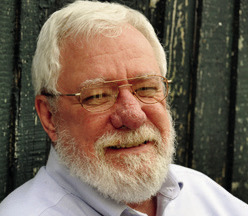When Jean Castex started a small general store on the Mermen - tau River, the town that grew up around it was little more than a cross - ing point for brave trav - elers on the Old Spanish Trail. The area was just beginning to lose its rep - utation as a refuge for smugglers, outlaws, and other assorted scoun - drels. He wasn't one of them; in fact, he had the reputation of getting along with everybody, even as he made a little profit off of them. Or sometimes more than a little.
John Landreth, a sur - veyor, who in 1818 vis - ited the area looking for timber suitable for build - ing Navy ships, wrote in his journal, "these places, particularly the Mermentau and Calca - sieu, are the harbours and Dens of the most abandoned wretches of the human race ... smugglers and Pirates who go about the coast of the Gulph in vessels of a small draught of water and rob and plun - der without distinction every vessel of every na - tion they meet and are able to conquer and put to death every soul they find on board without respect of age or sex and then their unlawful plunder they carry all through the country and sell at a very low rate and find plenty of pur - chasers." Most of the really bad wretches had cleared out by the time Castex, a native of Gourdon, France, opened a gen - eral store on the river in 1856, but it was still a pretty rowdy place.. It’s not clear why or how he got to the Mermentau, but he was shrewd enough to recognize when he got there that the point where most travelers crossed the river was a good place to set up shop.

Bradshaw
Bradshaw
He was a pioneer farmer as well as a pioneer settler. He is thought to be the first planter to use a deep well to irrigate his rice crop, using a windmill to power the pump. He also planted cotton and built what may have been the first cotton gin in the area in 1860. When he died in 1900, the New Orleans Picayune reported that he was “one of the pioneer settlers of the village of Mermentau … [and] was engaged in general merchandise there and was also largely interested in rice farming and other business pursuits.”
A later newspaper account described him as a “prominent land owner and business man … [and] one of the most colorful figures in the early business and civic history of this section.” He was “owner of thousands of acres of land, [and a] stockman, mill owner, and proprietor of one of the largest general merchandise stores in Southwest Louisiana,” according to that account.
He “lived in the traditional French style,” the newspaper said. “His home was a haven for travelers going through the country, when travel was mainly by horseback, and he was famed, not only for his wealth and broad estates, but for his generous hospitality.”
He and his wife, the former Alice Landry of St. Landry Parish, were visiting France when he died unexpectedly on August 14, 1900, at the home of his brother near Paris. His remains were brought back to Louisiana, and he was buried in Calvary Cemetery in Jennings.
By then his son, also named Jean, was managing the family’s “many farms and various activities pertinent to such vast land holdings,” including the store “which catered to the needs of the farming element for miles around.” Young Jean and his wife, Clara Andrus, a descendant of the founder of the Andrus Cove community, continued to live on the old family estate until, about 1935, it became the “site of the latest oil development in the section.” You can contact Jim Bradshaw at jimbradshaw4321@ gmail.com or P.O. Box 1121, Washington LA 70589.

